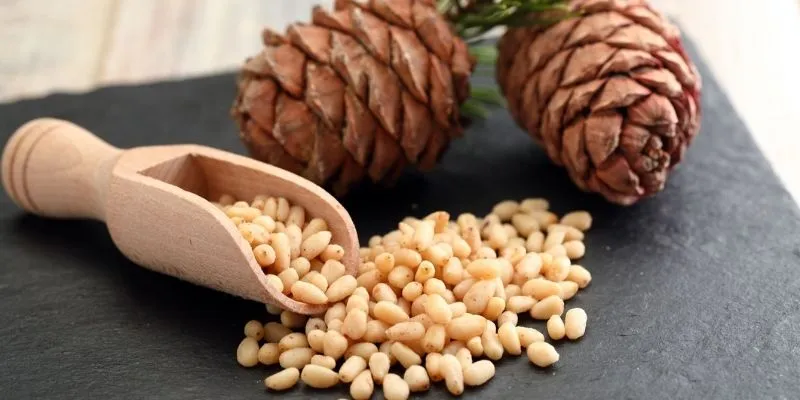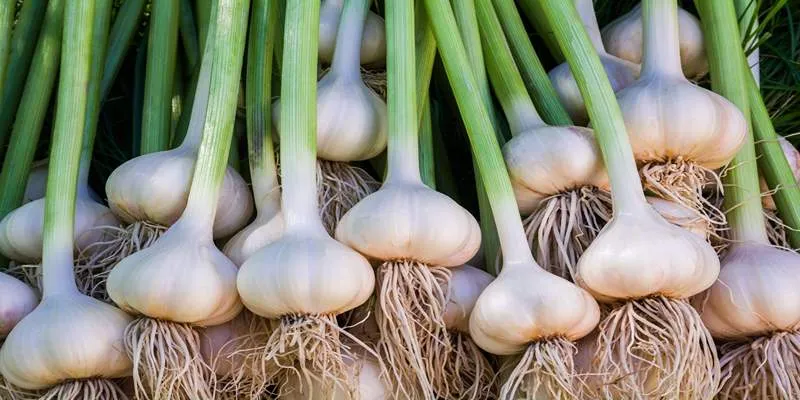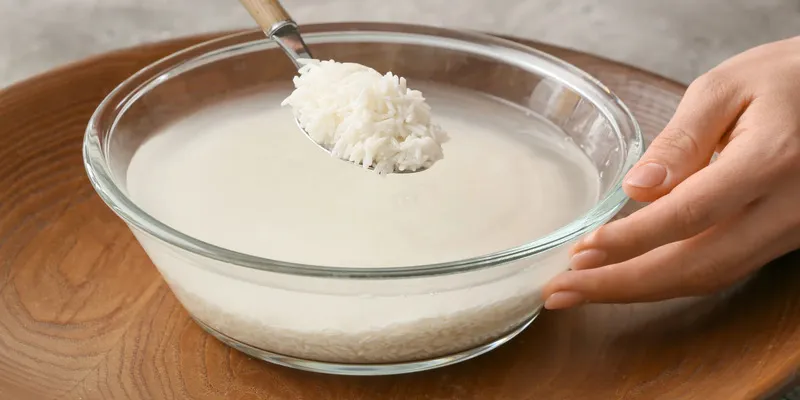Does Nutritional Yeast Cause Weight Gain?
Yeast has been a crucial part of the human diet for thousands of years, serving as a main ingredient in beer, bread, and various other foods. Recently, a specific type of yeast called nutritional yeast has gained popularity.
With its growing consumption, many wonder if nutritional yeast contributes to weight gain. Despite its richness in protein, minerals, and vitamins, nutritional yeast is low in calories, making it unlikely to affect your body weight significantly. If you’re aiming for weight gain, other food options might be more suitable.
This article explores whether nutritional yeast causes weight gain, its caloric intake, health benefits, and potential risks.
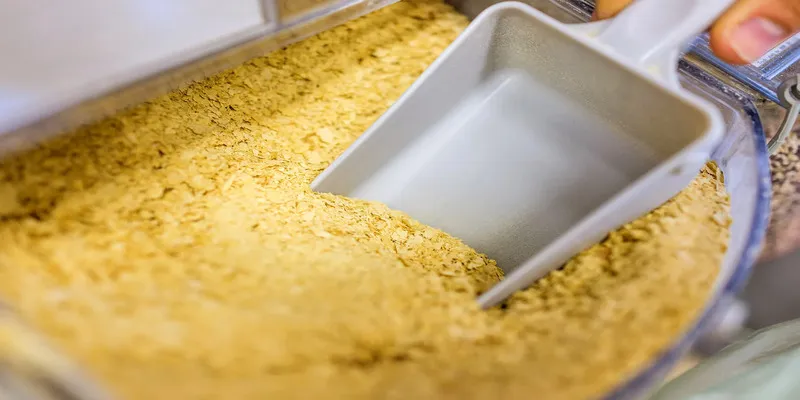
Does Nutritional Yeast Cause Weight Gain?
Nutritional yeast is a gluten-free and dairy-free ingredient that adds a nutty and savory flavor to dishes. It’s often used by vegans and vegetarians as a Parmesan cheese alternative. Its high nutrient content makes it an excellent addition to any diet.
Given its low-calorie profile, nutritional yeast is unlikely to cause weight gain. If you’re considering it for weight gain, you’ll need to pair it with high-calorie recipes.
Before significantly increasing your nutritional yeast intake, consult your doctor, as it contains purines that may trigger health concerns like gout symptoms or allergies.
Nutritional Yeast and Calorie Intake
The caloric content of yeast varies by type. Nutritional yeast generally has fewer calories compared to others. Let’s look at the calorie intake for different types of yeast:
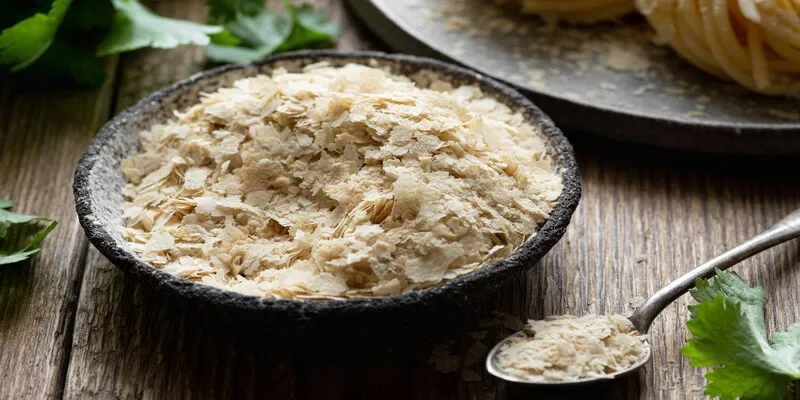
- Nutritional Yeast: Contains about 15-20 calories per tablespoon, depending on size and type.
- Parmesan Cheese: Approximately 21 calories per tablespoon, slightly more than nutritional yeast.
- Baker’s Yeast: About 23 calories per tablespoon, higher than nutritional yeast.
- Brewer’s Yeast: Contains 28 calories per tablespoon, significantly more than nutritional yeast.
To gain a pound, you need an intake of 3500 calories. Consuming such a large amount of nutritional yeast to increase body weight is impractical. If someone gains weight after adding nutritional yeast to their diet, it’s likely due to other high-calorie foods. Always check the nutrient information before adding it to your diet.
Nutritional Yeast Nutrient Facts
One tablespoon of nutritional yeast contains:
- Calories: 20
- Fat: 0 grams
- Proteins: 2.5 grams
- Carbohydrates: 1.5 grams
- Sugar: 0 grams
- Fiber: 1 gram
Nutritional yeast is an excellent source of:
- Vitamin B12
- Thiamine B1
- Pyridoxine B6
- Zinc
- Riboflavin B2
- Potassium
How Much Nutritional Yeast per Day is Okay?
The safe daily amount of nutritional yeast isn’t precisely established, but two tablespoons can meet mineral and vitamin needs without adverse effects. It’s often recommended for vegans and vegetarians to meet dietary requirements.
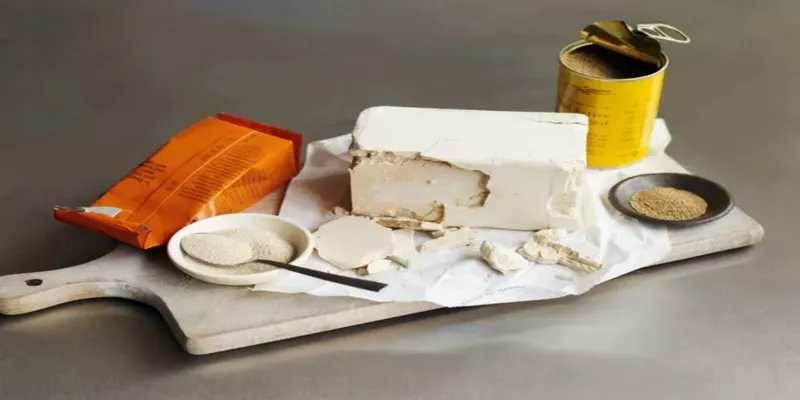
While nutritional yeast is nutrient-rich, it can cause adverse effects. Consult your doctor before using it as a fattening ingredient to ensure it aligns with your health goals.
Nutritional Yeast Health Benefits and Risks
Nutritional yeast is rich in essential nutrients like vitamins and high- quality protein. Here are some notable benefits:
Nutritional Yeast Supports Weight Management
Its nutrient density and low-calorie content make nutritional yeast ideal for weight management. However, it can also contribute to weight gain if paired with extra calories, meeting your protein and nutrient needs efficiently.
It provides key fiber, vitamins, and proteins necessary for red blood cell production, nerve cell health, and DNA formation.
Strengthens Immune System
Studies show nutritional yeast strains strengthen the immune system, reducing inflammation from bacterial infections and treating diarrhea.
Boosts Energy Levels
Vitamin B12 in nutritional yeast helps boost energy levels, combating tiredness and fatigue. It’s especially beneficial for vegans and vegetarians, as B12 is typically found in animal products.
Improves Skin, Nails, and Hair Growth
Nutritional yeast can reduce acne and other skin issues, particularly in adults, and combats brittle nails and hair loss, promoting healthy and shiny appearance.
Potential Side Effects of Nutritional Yeast
Nutritional yeast, available in flakes or powder, is a great source of fibers and minerals but may cause health issues, such as:
- Bowel Regularity: High dietary fiber can promote bowel regularity.
- Digestive Issues: Sudden fiber increase can cause abdominal discomfort.
- Migraines or Headaches: Some products contain tyramine which may trigger headaches.
- Facial Flushing: Excessive consumption can cause this reaction.
Bottom Line
In conclusion, nutritional yeast is unlikely to cause weight gain due to its low-calorie nature. However, it adds a cheesy, nutty flavor to dishes. Use it on vegetables, popcorn, salads, scrambled eggs, pasta, or any dish you enjoy. Remember, even a small calorie increase can lead to weight gain.
One to two tablespoons per day is usually sufficient. If you’re allergic, avoid it completely. This guide should help you understand if nutritional yeast causes weight gain. We hope you found it useful!


